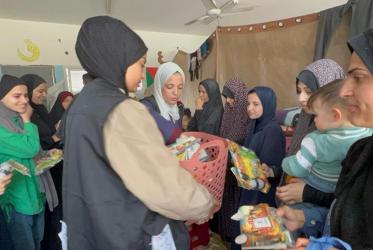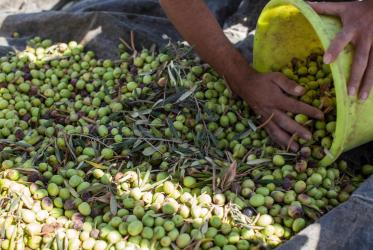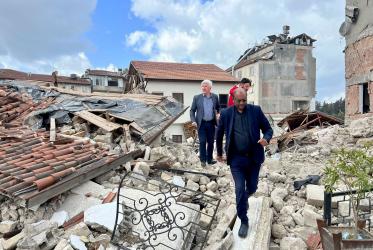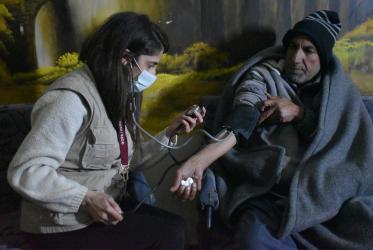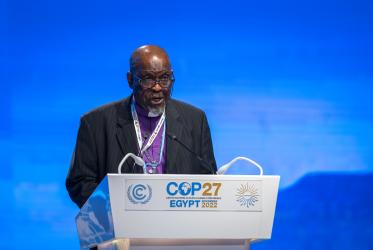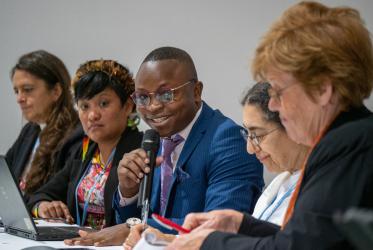Displaying 1 - 20 of 46
17 April 2024
Displaced people south of Gaza face extreme difficulty
21 December 2023
COP side event explores how to deliver on the promise of adaptation
16 November 2022
Migrants in Argentina find listening ears and open hearts
04 November 2022
WCC stands in solidarity with victims of major flood in Brazil
17 February 2022

